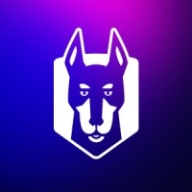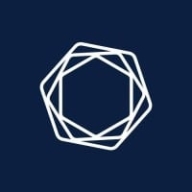

Snyk and Tenable Cloud Security are competitive products in cloud security, with Snyk known for its strong pricing and support, while Tenable is noted for its comprehensive feature set, often seen as worth the investment.
Features: Snyk provides powerful open-source vulnerability scanning, seamless integration with developer workflows, and is easy to use for tech teams. It supports integration with various platforms and offers an accurate vulnerability database. Tenable Cloud Security offers extensive visibility, risk management, and a vast vulnerability database. It is geared towards holistic security management with strong asset management features and DevOps integration.
Room for Improvement: Snyk could expand its library size and improve support for more niche programming languages. Users have experienced missing licenses in certain cases, and there is a need for more granular control in its security features. Tenable Cloud Security could simplify deployment and user interface, expand its reporting capabilities, and provide better cost efficiency for smaller teams looking to implement its comprehensive features.
Ease of Deployment and Customer Service: Snyk benefits from rapid deployment and robust customer service, ideal for tech teams aiming for quick integration. Tenable Cloud Security's deployment is more complex, but it provides thorough customer service for detailed support, suited for organizations requiring in-depth security.
Pricing and ROI: Snyk offers competitive initial costs and substantial ROI, appealing to budget-conscious environments with its simplicity and ease of use. Tenable Cloud Security has a higher upfront cost, justified by its extensive security features, providing value for those seeking comprehensive coverage and robust security management.
We could understand the implementation of the product and other features without the need for human interaction.
Our long-standing association has ensured smooth communication, resulting in favorable support experiences and satisfactory issue resolution.
Their response time aligns with their SLA commitments.
With Element, if you need a feature, you can discuss it with them, and if implementation is possible, you will have that feature within a month or two, depending on complexity.
Snyk allows for scaling across large organizations, accommodating tens of thousands of applications and over 60,000 repositories.
In situations where there was a platform issue, they fixed it immediately and provided a complete explanation for the occurrence.
It lacks the ability to select branches on its Web UI, forcing users to rely on CLI or CI/CD for that functionality.
One key feature we are currently examining with Veracode is AIVSS (Artificial Intelligence VSS), which is an extension of CVSS to cover use cases or top 10 LLM findings during code scanning.
The inclusion of AI to remove false positives would be beneficial.
Currently, with resource constraints, we need tools to collect and aggregate data, eliminate false positives as much as possible, and present relevant information to employees for action.
The only complaint I hear in the market is from resellers that Tenable management team in Brazil doesn't play fair with the channel and resellers.
After negotiations, we received a special package with a good price point.
Snyk is less expensive.
Snyk is recognized as the cheapest option we have evaluated.
Snyk helps detect vulnerabilities before code moves to production, allowing for integration with DevOps and providing a shift-left advantage by identifying and fixing bugs before deployment.
Our integration of Snyk into GitHub allows us to automatically scan codebases and identify issues, which has improved efficiency.
The best feature of Snyk is the integration with our ticketing system, which is Jira.
The automatic integration capabilities, particularly with DNS, Azure, and AWS, are extremely valuable.
The best features Tenable Cloud Security offers in my experience are automatic scanning, frequent scanning, and automatic finding, which I find valuable.
Perhaps the best functionalities are related to promoting a deeper analysis of the environment where applications are running in terms of creating a double armor of security to block threats that may come in the cloud with Tenable Cloud Security.
| Product | Market Share (%) |
|---|---|
| Snyk | 5.4% |
| Tenable Cloud Security | 1.5% |
| Other | 93.1% |


| Company Size | Count |
|---|---|
| Small Business | 20 |
| Midsize Enterprise | 9 |
| Large Enterprise | 21 |
| Company Size | Count |
|---|---|
| Small Business | 5 |
| Midsize Enterprise | 2 |
| Large Enterprise | 5 |
Snyk excels in integrating security within the development lifecycle, providing teams with an AI Trust Platform that combines speed with security efficiency, ensuring robust AI application development.
Snyk empowers developers with AI-ready engines offering broad coverage, accuracy, and speed essential for modern development. With AI-powered visibility and security, Snyk allows proactive threat prevention and swift threat remediation. The platform supports shifts toward LLM engineering and AI code analysis, enhancing security and development productivity. Snyk collaborates with GenAI coding assistants for improved productivity and AI application threat management. Platform extensibility supports evolving standards with API access and native integrations, ensuring comprehensive and seamless security embedding in development tools.
What are Snyk's standout features?Industries leverage Snyk for security in CI/CD pipelines by automating checks for dependency vulnerabilities and managing open-source licenses. Its Docker and Kubernetes scanning capabilities enhance container security, supporting a proactive security approach. Integrations with platforms like GitHub and Azure DevOps optimize implementation across diverse software environments.
Tenable Cloud Security is a comprehensive solution designed to help organizations secure their cloud environments across various platforms, including AWS, Azure, and Google Cloud. It offers continuous visibility, compliance management, and threat detection to ensure that cloud infrastructure and applications are protected from vulnerabilities and misconfigurations.
Tenable Cloud Security exemplifies a comprehensive Cloud-Native Application Protection Platform (CNAPP) by providing a unified solution that covers the entire cloud security lifecycle, from development to runtime. This platform is designed to address vulnerabilities, misconfigurations, threats, and compliance risks across multi-cloud environments, making it an essential tool for organizations adopting cloud-native architectures. In practice, Tenable Cloud Security integrates security into the development process through its shift-left approach, particularly with Infrastructure as Code (IaC) security. This ensures that security measures are embedded early in the development lifecycle, allowing teams to identify and mitigate vulnerabilities before they reach production. Once in production, the platform continues to provide real-time visibility into cloud environments, enabling continuous monitoring and proactive threat detection.
The solution's comprehensive protection spans various aspects of cloud security, including the identification and remediation of misconfigurations, automated compliance management, and advanced threat intelligence. By automating these processes, Tenable Cloud Security reduces the manual effort required to manage cloud security, freeing up resources for more strategic initiatives.
What are the key features of Tenable Cloud Security?
What are the benefits of using Tenable Cloud Security?
Tenable Cloud Security is particularly valuable in industries with stringent regulatory requirements, such as finance, healthcare, and retail. For example, in the financial sector, it helps organizations ensure compliance with regulations like PCI-DSS while safeguarding sensitive data across cloud environments.
In summary, Tenable Cloud Security is a robust CNAPP solution that integrates security throughout the cloud lifecycle, providing comprehensive protection and operational efficiency for cloud-native environments.
We monitor all Container Security reviews to prevent fraudulent reviews and keep review quality high. We do not post reviews by company employees or direct competitors. We validate each review for authenticity via cross-reference with LinkedIn, and personal follow-up with the reviewer when necessary.